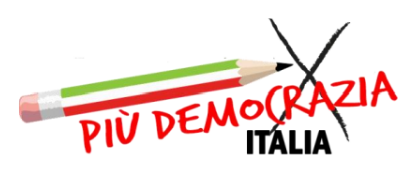Home › Forum › 6 – La democrazia in generale, nella storia, nei partiti e nelle associazioni. › Democrazia in Cina (Una intervista a Mao)
- Questo topic ha 0 risposte, 1 partecipante ed è stato aggiornato l'ultima volta 6 anni, 5 mesi fa da
Leonello Zaquini.
-
AutorePost
-
-
21 Dicembre 2018 alle 20:49 #1250
Leonello Zaquini
ModeratoreTrovo interessante questo articolo:
Dove si legge:
= = =Free elections, argues this piece in <i>China Daily</i> are not the democracy you are looking for. Here’s an extract:
Before Chairman Mao Zedong declared the founding of the People’s Republic on Oct 1, 1949, he was challenged by Huang Yanpei, a well-known non-Communist educator. Huang asked Mao: Throughout Chinese history, no dynasty could survive the historical cycle, in that every dynasty was vigorous in its initial years and became prosperous, but then declined and finally collapsed. Can you Chinese Communists manage to move beyond this cycle?
Mao was confident and told Huang, “Yes”. Because, “We have an advanced political regiment, we have democracy which allows the people to supervise the government,” Mao said.
There have been zigzags in the exploration to realize this democracy in Mao’s mind, and there were even deviations from that goal when efficiency was emphasized. But democracy has become the commonly accepted value of younger generations of CPC leaders.
In 2006, the 6th Plenary Session of the 16th Central Committee of the Communist Party of China summarized the participatory democracy into the following four rights: Right to know, right to participate, right to expression and right to monitor or supervise. These four rights can be regarded as the cornerstone of China’s participatory democracy.
Of course, there have been obstacles in the course of people’s enjoyment of these rights. There have been cases of abuses of power. But we have been moving to improve our system to honor these rights, and we also see encouraging signs that ordinary people and individuals are acting to practice these rights.
By all means, more and more people in China have come to realize the significance of participatory democracy. Extensive participatory democracy can benefit individuals and society at large better than free elections.
What is interesting to me there is that an official Government organ is not making a case against western democracy in concept (as, for example, Islamists do), but is supporting the principle of democracy while arguing about the means.
-
-
AutorePost
- Devi essere connesso per rispondere a questo topic.
Condividi:
- Fai clic per condividere su Telegram (Si apre in una nuova finestra) Telegram
- Fai clic per condividere su X (Si apre in una nuova finestra) X
- Fai clic per condividere su Facebook (Si apre in una nuova finestra) Facebook
- Fai clic qui per condividere su Reddit (Si apre in una nuova finestra) Reddit
- Fai clic qui per condividere su LinkedIn (Si apre in una nuova finestra) LinkedIn
- Fai clic qui per condividere su Tumblr (Si apre in una nuova finestra) Tumblr
- Fai clic qui per condividere su Pinterest (Si apre in una nuova finestra) Pinterest
- Fai clic per condividere su WhatsApp (Si apre in una nuova finestra) WhatsApp
- Fai clic qui per condividere su Pocket (Si apre in una nuova finestra) Pocket
- Fai clic qui per stampare (Si apre in una nuova finestra) Stampa
- Fai clic per inviare un link a un amico via e-mail (Si apre in una nuova finestra) E-mail
